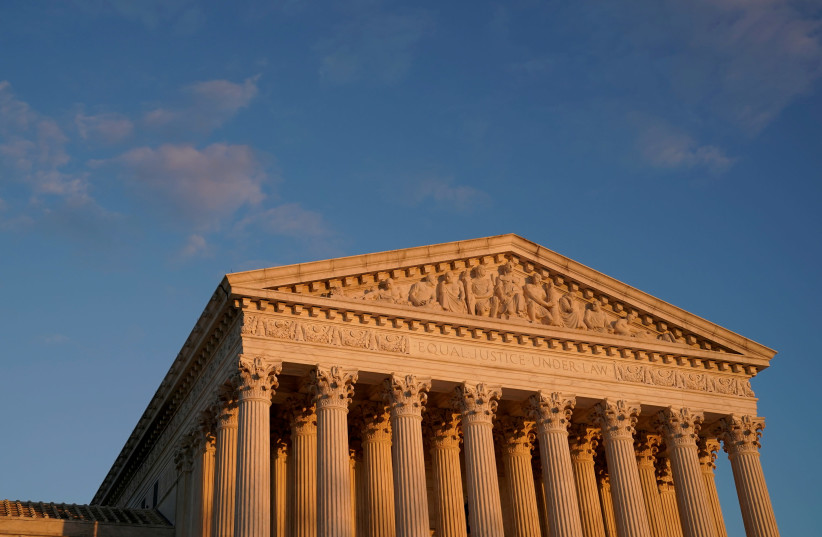I was present at the international conference on political Hebraism that was held in Jerusalem under the auspices of the Shalem Center in August 2004. The theme was to review a school of thought proposing that biblical texts and subsequent Jewish ideas highlighted in the early Middle Ages have critically contributed to political philosophy and confirmed that Hebrew sources were very much present in political thought. It was – and my apologies to conservatives – a revolutionary experience.
Yoram Hazony – as president of the Shalem Center; director of the John Templeton Foundation’s project in Jewish Philosophical Theology, where he pushed for a revival of theological education; and currently as president of the Herzl Institute in Jerusalem – has been springboarding ever since on the long-lost foundations of concepts from Jewish biblical philosophy that should enrich our appreciation of Hebraic political thought and convince us of its required study.
Almost two decades later and several volumes that Hazony published since – his book The Virtue of Nationalism was selected as the Conservative Book of the Year for 2019 by the Intercollegiate Studies Institute – we now have his newest book, Conservatism: A Rediscovery, which has been generating discussions, debates and discourse among conservative intellectual elites.
Progressivism: The woke formulation of Marxism
Hazony sees the “hegemony of Enlightenment liberalism” as having been shattered and that a disguised Marxism – that is, “progressivism” in its woke formulation – has re-ascended and become a “spectacular and horrifying historical event.” Hazony champions, in opposition, the political tradition of Anglo-American conservatism, which he writes possesses “a strong intuitive commitment to… constitutional tradition.” He seeks to have its “moral fiber” and its national and religious traditions restored.
THE BOOK is divided into four sections, each containing multiple and quite short chapters – indeed, the introduction appears to be the book’s longest unit. They are: history, philosophy, current affairs and personal reflections.

We learn that the political ideology of America’s Constitution is a result of a long tradition of English conservative thought and not a break from it. He then challenges classical liberalism and emphasizes values as personal moral transformation and a cognizance of God and scripture. He finishes with a recounting of his own journey into conservative political philosophy.
As John Bolton has written of the book, Hazony “explores conservative thought at three different levels: abstract philosophy; the operational intersection of philosophy and policy; and in specific historical contexts.”
Essentially, Hazony moves the focus of conservatism from a way of forming institutions and assuring their effectiveness on behalf of a society to a way of living lives that fulfill values. In the section in Part 4 titled “A Conservative Life,” he writes there must be a “transmission of ideas, behaviors, and institutions” from generation to generation – and that transmission is a skill. Only by practice, that is, by actually living them, can those values be transmitted as well as flourish. Hazony thus moves the focus of his audience from the sphere of thoughts to that of actions.
Churning controversy, even among conservatives
The book has churned up no little controversy even within the conservative camp. Hazony posits that a nation cannot prosper unless it publicly honors God and places Scripture in a prime position of public importance. One of the heroes of the English conservative tradition that the author builds upon is John Selden, who firmly insisted that our assessment of traditional laws is necessarily shaped by the Talmud. Hazony, in this book, does not overemphasize the Jewish roots of conservatism.
However, I did take note that in a chapter discussing “God, Scripture, Family, and Congregation,” Hazony quotes, on page 191, what he terms “that famous Mosaic proposition, which Jews say twice every day.” He translates it thusly: “The Lord is our God, the Lord is one.” But I am puzzled as to why he absented the verse’s subject, which is the Jewish nation: “Listen, O Israel.” The identification of the verse’s subject would serve him well, I would presume, in highlighting the nationhood aspect of his thesis, for here we see an example of the God-Nation nexus.
Moreover, given some troubling developments such as a renewed push on the extreme edge of the conservative camp for a “Christian nationalist” society – and calls for the conservative movement to be “exclusively Christian” – a staunch defense of a more inclusive religious essence would be in place. Hopefully, this will happen.
Conservativism, ideology and Israel
Peter Berkowitz, a senior fellow at Stanford University’s Hoover Institution, reacts unfavorably to Hazony’s “tendentious stress on ‘tribes’ – a social division typical of traditional societies that ill describes the experience of most 21st-century Americans.” Given former Israeli president Reuven Rivlin’s famous 2015 “Four Tribes” speech, in which he called for a new domestic national order for Israel, it would be interesting to pursue how an identical term can be interpreted differently in two separate instances.
Rivlin addressed what he saw was Israel’s “changing demographic and cultural reality” of the secular, ultra-Orthodox, national-religious and Arab sectors. He lamented the tensions and divisions between them and called for a renewed national mission of healing these rifts and learning to live together in mutual respect. How would that reflect on Hazony’s conservative outlook?
Against the backdrop of Israel’s upcoming elections, I suggest it would be refreshing to have at least part of the debates over platforms and policies reflect a discourse on public philosophy that emerges from Hazony’s latest book. There is nothing wrong in being challenged. Politics is only one element of our national engagement. Culture, tradition, religion and a sense of purpose should also be on the agenda, as well as a few grand ideas. Israelis could benefit from Hazony’s canvas as presented in this volume.
Conservatism: A Rediscovery
By Yoram Hazony
Regnery Gateway
256 pages; $29.99
